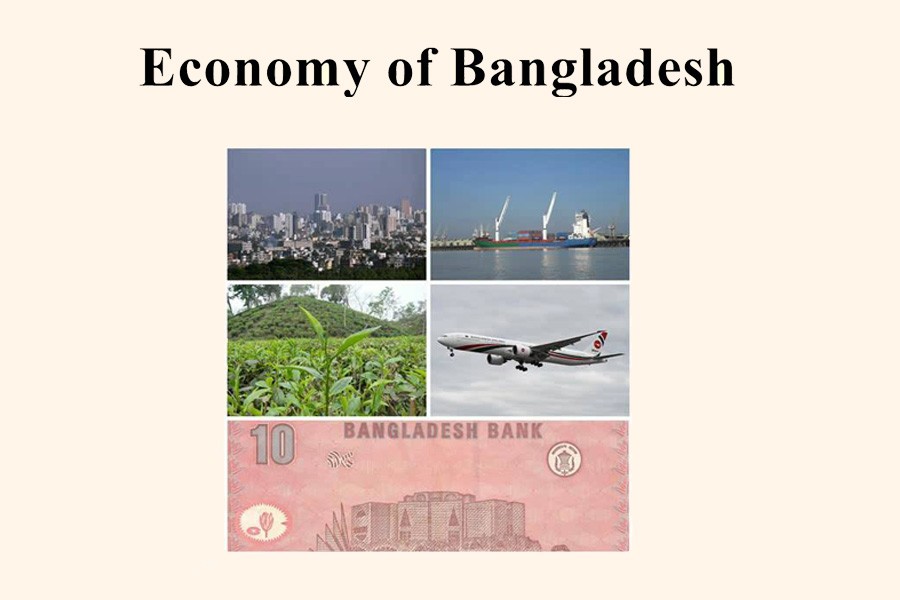During the 1992 US Presidential campaign one of the chief strategist of Bill Clinton, James Carville, coined the phrase "The Economy, Stupid" to emphasise one of the principal agenda of the campaign strategy. This phrase and its variation, "It's the Economy, Stupid" have become a famous reference to highlight the importance of economy as a vote-decising factor in an election year. It would have been preferable to have that narrative for Bangladesh's election year agenda, in the past and now. Although given the experience of how the last election had been conducted in Bangladesh, citizens' voice through voting would be the last thing to be reflected in the upcoming election, let alone economy being a deciding factor. It is quite apparent that the only agenda on the table is to have an election that ensures the continuation of current political hubris.
Political events and year-long political narratives by mainstream political parties serve only their short-term goal: to secure power or ensuring prospect of power. Our short-sighted political leaders and policymakers fail to recognise that what they think of as political achievements are false goals pre-determined by much larger and powerful entities. The political short-sightedness affects the economic well-being of Bangladesh and its 160 million people. Year after year political reforms and economic policies have only addressed short-term challenges. Concurrently the systemic capacity of the country's governance capability has eroded to such a level that the economic environment is now going through a free-for-all scenario.
The Government unveils increasingly larger budget year after year without any show of proper implementation. Rather each year the budget implementation rate has decreased and this affects our overall debt financing capabilities while mega projects become mega burdens. The banking sector's systemic weaknesses have been identified and forecasted to bring irreversible economic repercussion in the near future. If the current fever-pitched focus on politics is not diverted to the looming economic crisis, then there is a strong probability of an economic recession by 2021.
Bangladesh is fortunate to have a few factors supporting its year-after-year economic challenges: large working population, remittances and tenacity of population to survive. However, as an economic system there are critical moments of entropies. Bangladesh has been leveraging its finances at such a level that within a few years as a country our solvency would be questioned. This seems almost unimaginable given the boasted indicators and positive statements presented to us and to the international community by our policymakers and politicians.
Before 2008 financial crisis in the US, the industry-wide indicators and majority of experts opined that such a crisis was not possible. It is our overconfidence as well as stupidity fuelled by hubris that pushes us towards such a path. An economic shock will cause a domino effect that could trigger a systemic crisis that eventually would collapse the economy. Bangladesh will survive the crisis but the price will be high -- costing us our economic freedom. International speculators, monetary authorities and financial institutions would require us to agree to their terms in order to throw us an economic life-raft.
The Digital Bangladesh that showed strong economic growth and great prospects will still be there and most probably will deliver the economic output forecasted, however with one fundamental change. If Bangladesh recovers from an economic recession, then post-recession economic output will be siphoned off to service our debt and all our productivity and growth will be for those entities that took advantage of our political and economic shortsightedness.
The international pressure to consolidate our banking sector, strategic forceful takeover of banks, international capital market institutions trying to merge with our bourses -- these are all signs of a pre-determined path. A path to gain economic arbitrage over the recession period has been set by external forces with domestic partners. In the last few years Argentina, Venezuela, Greece, Kenya, Sri Lanka are examples of countries that were forced to negotiate their debt obligation with another country or international institutions.
Bangladesh as a country needs to recognise that the political arbitrage by the ruling regime takes advantage of the country's situation; and this would eventually create an economic arbitrage scenario for external forces. Prime Minister Sheikh Hasina stated in her speech at the 41st session of the International Fund for Agricultural Development (IFAD) Governing Council that the difference in financing options that targets the rural economy makes a significant impact in our rural citizens' well-being. In that same note, it would be a great service if the policymakers and the Prime Minister recognize that the economic fallout due to political shortsightedness would be a great challenge to their own long-term political survivability.
A favourable political outcome in an election year might be considered the only astute political decision. Although ensuring a favourable economic outcome would send a message to powerful entities and civil society that the government truly is Machiavellian enough to balance both the economy and politics, and given Bangladesh's societal context, a competent government has better ruling prospect compared to only being powerful.
The current liquidity pressure, and on top of that, state-owned banks' request for capital injection to address huge shortfall in funds strengthen the argument for the international debt financiers that our current government and monetary authorities are incompetent to address the near-future economic crisis. Appropriate regulatory decisions and exemplary pecuniary measures based on similar case studies would help us avoid such grim prospects. A bank, run with the prospect of recession, would not bode well for the country and the ruling government. If that truly happens then it would be too late to even say "It's the economy, Stupid".
Safwan Rob is Archer Fellow, Lee Kuan Yew Scholar [email protected]


